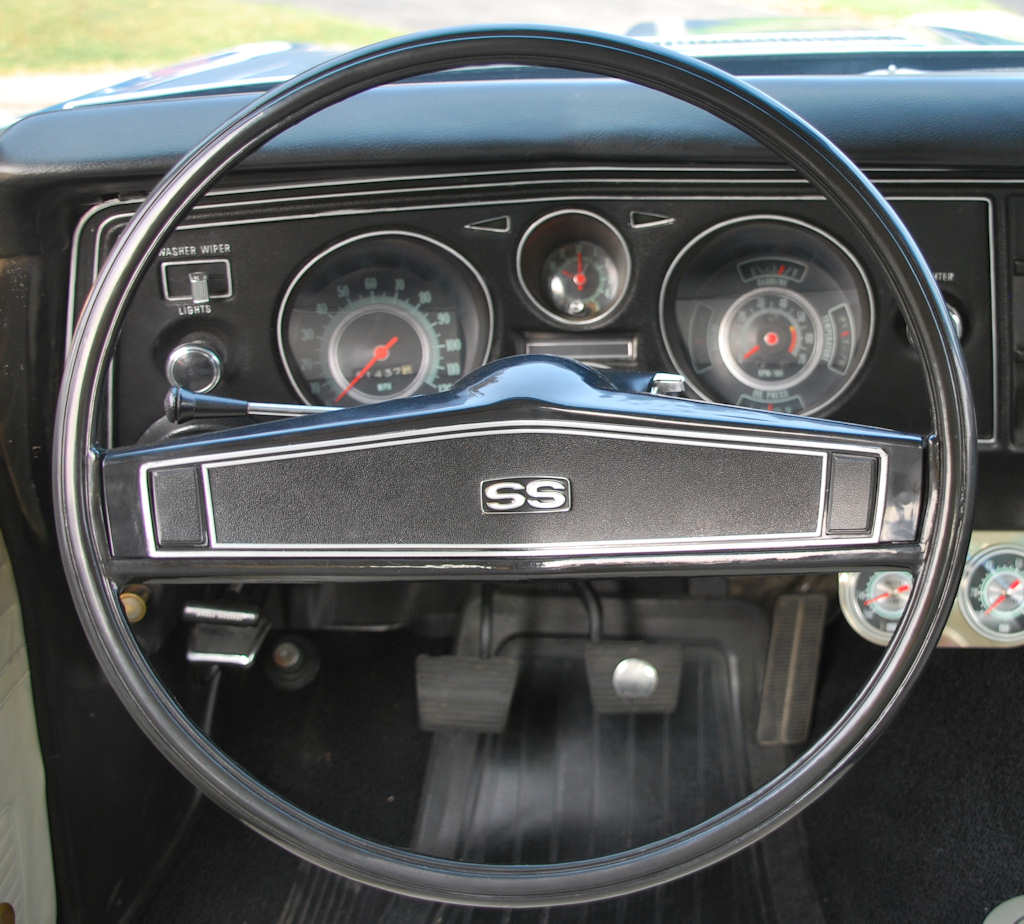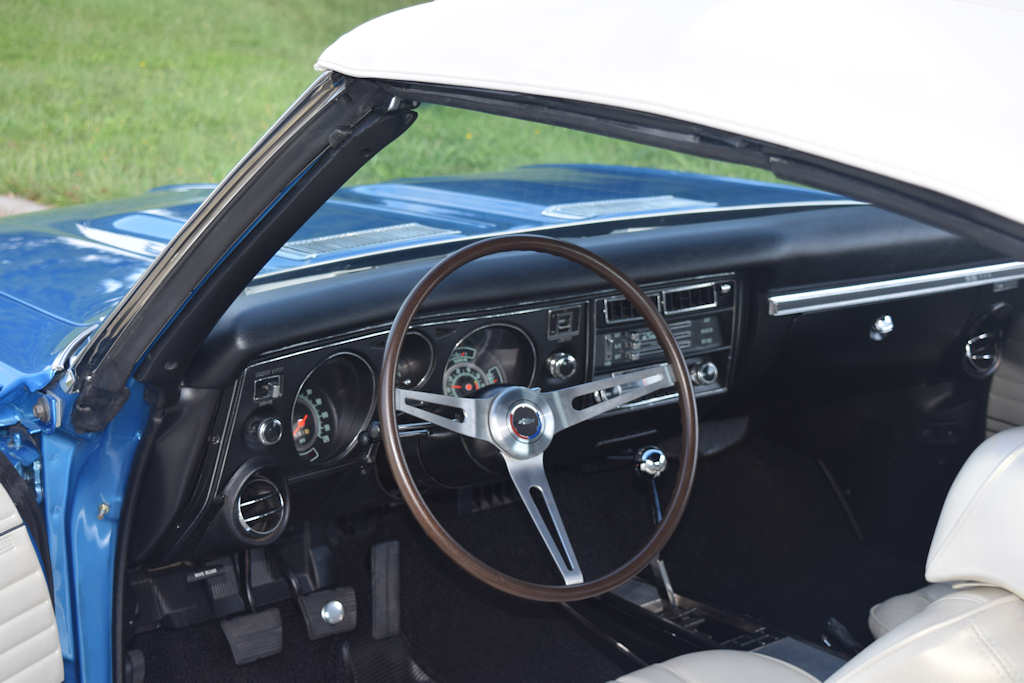1969 SS 396
1969 SS 396 Interior
Interior trim colors get kind of tricky since the Z25 option was available with the 300 Deluxe coupe and sport coupe as well as the Malibu sport coupe, convertible, and sedan pickup. The Z25 option did nothing to add or subtract any seat type or interior color from their respective series.
When a Malibu sport coupe was ordered in one of the six two-tone paint combinations, dark blue, medium green, and medium red were not available only black, dark green, medium turquoise and parchment/black.
When RPO Z25 was ordered with the 300 Deluxe, regardless of coupe or sport coupe, it was not ‘upgraded’ to Malibu standards. When a 300 Deluxe coupe or sport coupe was ordered in one of the 6 two-tone paint combinations, black was the only available interior color.
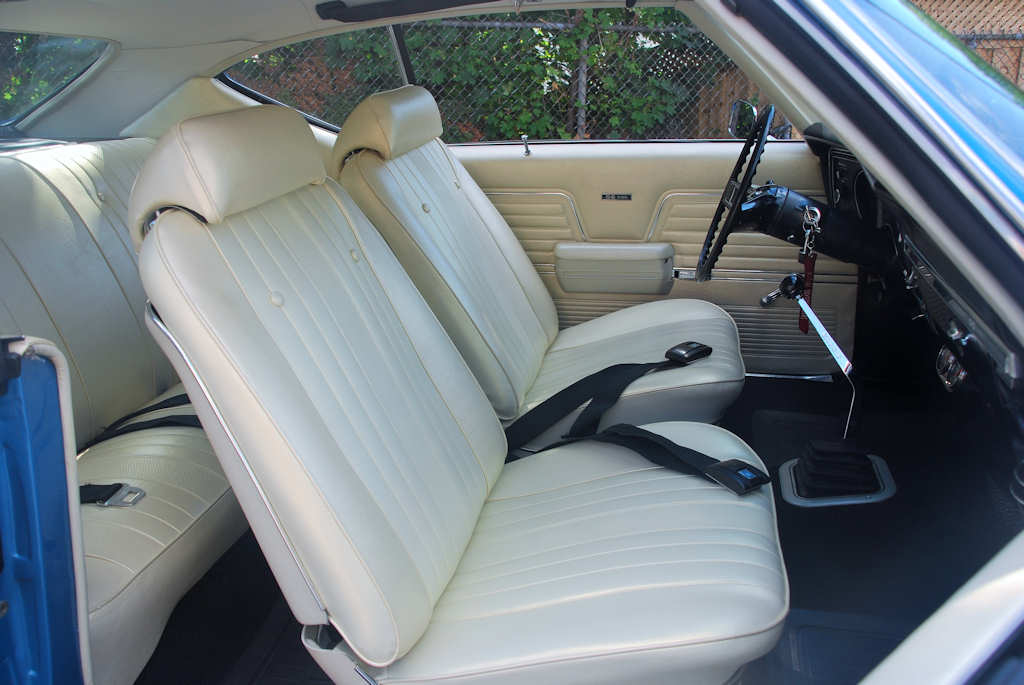
Bucket seats did not require a console to be ordered, the console was still optional under RPO D55. The majority of buyers ordering bucket seats did opt for the console as well, but not all; 79,871 Chevelles were optioned with RPO A51 Strato-Bucket seats but only 72,201 also checked off on the console leaving 7,670 Chevelles with bucket seats but no console. When bucket seats and no console were ordered with the Z25 option, the various manual transmissions would still be floor shifted while the Turbo-HydraMatic automatic transmission would remain column shifted. The center console was color coordinated with the interior color, i.e., black for black interior, blue for blue interior, gold for gold interior, etc.
A manual, column-shifted 3-speed transmission was the standard
transmission regardless of series or body style or engine with the
exception of the SS 396 optioned Chevelles which got a manual 3-speed
floor-shifted transmission.
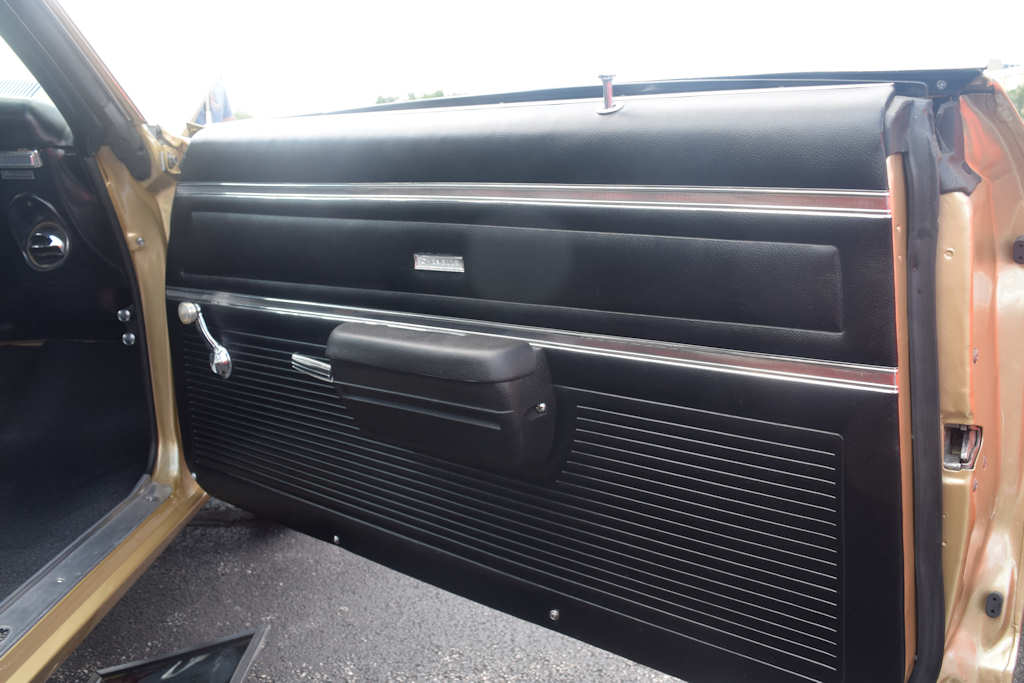
The SS 396 option did nothing for the 300 Deluxe door cards.
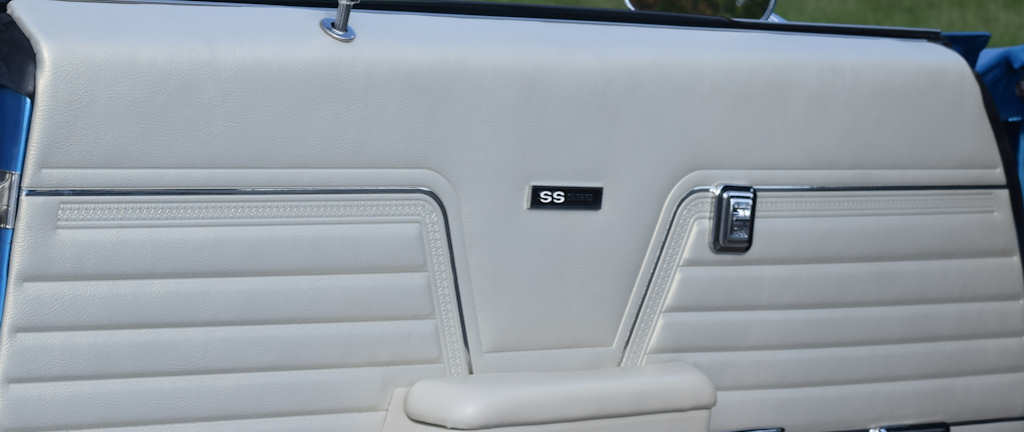
A nameplate was attached to the front door panel for the 300 Deluxe
and Malibu with standard Chevelle interiors but only the Malibu
series received an “SS 396” emblem on the door panel when the Z25
option was ordered, the 300 Deluxe series did not.
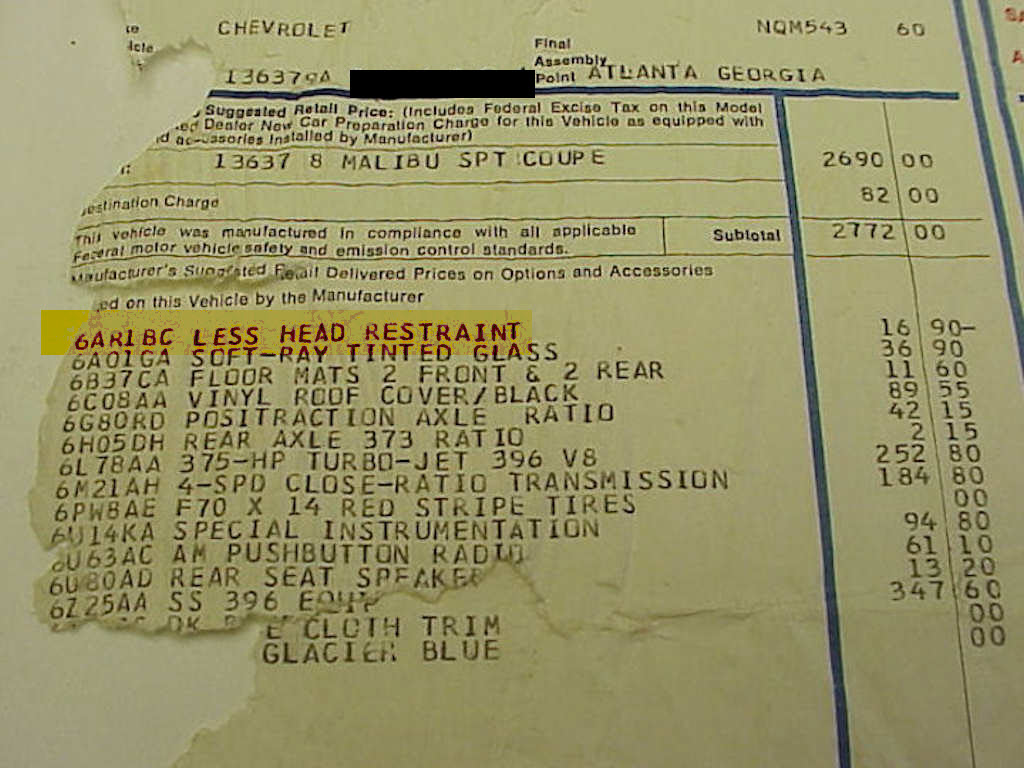
Headrests were no longer an option in 1969 and were mandated by
federal motor vehicle safety standards. Anyone purchasing a 1969
model year Chevelle before January 1, 1969 could opt to have them
removed by the dealer and 774 1969 Chevelles were reported with RPO
AR1, LESS HEAD RESTRAINT option. The procedure for dealers is
outlined in a Chevrolet Dealer Service Technical Bulletin number
69-T-1 dated October 10, 1968. This only applies to bench seat
Chevelles delivered prior to January 1, 1969. Technically RPO A82
was for head restraints and their cost was often broken out in
dealer’s car invoices and this amount would be refunded to the
customer if the customer opted to have them removed.
Instruments
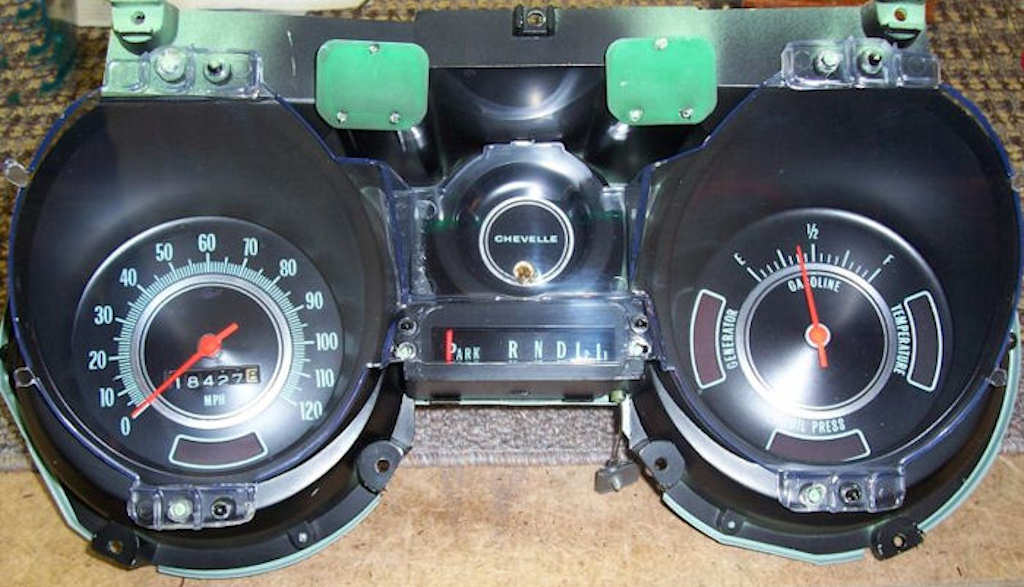
There is no such thing as “SS Gauges.” The optional RPO U14 Special
Instrumentation was available as an option on all V8 300 Deluxe
coupe and sport coupe as well as the V8 Malibu sport coupe,
convertible, or sedan pickup.
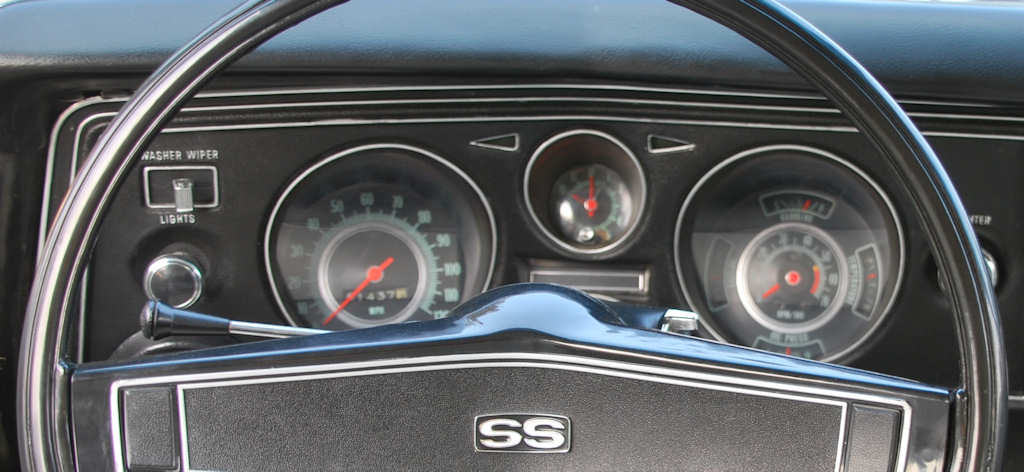
When the clock was ordered under RPO U35, with or without gauges, the
clock occupied the small center pod.
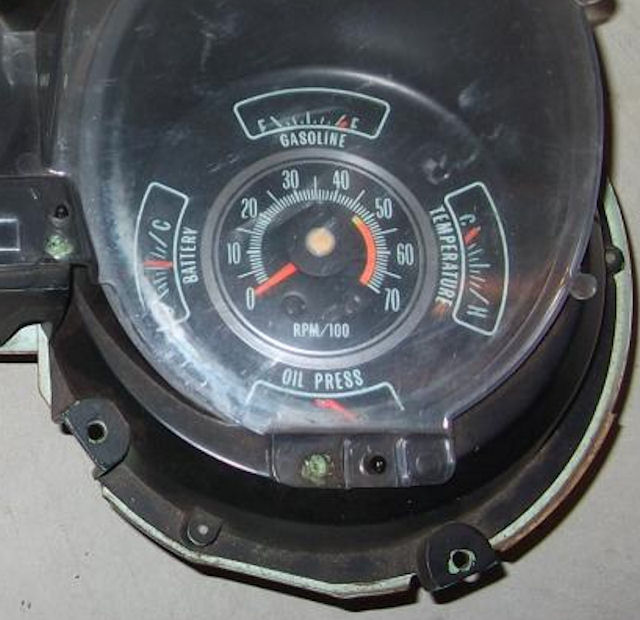
When U14 was ordered on a small block (307 cid or 350 cid
engine) car the tachometer has a 5000 RPM redline.
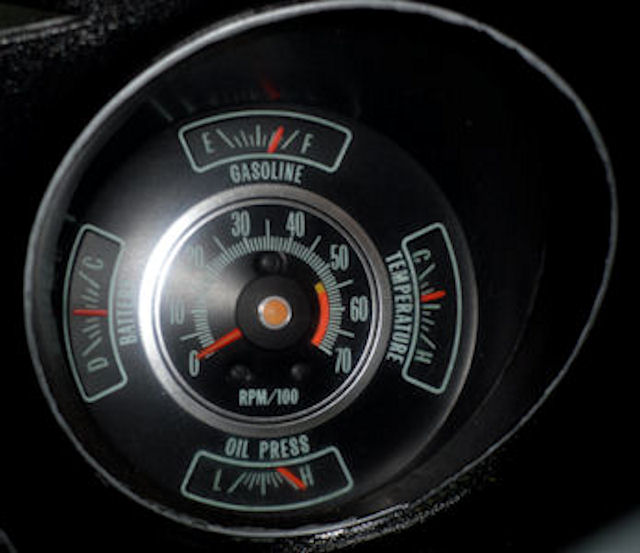
Both the 325hp and 350hp 396 cid engines got a tachometer with a
5500 RPM redline.
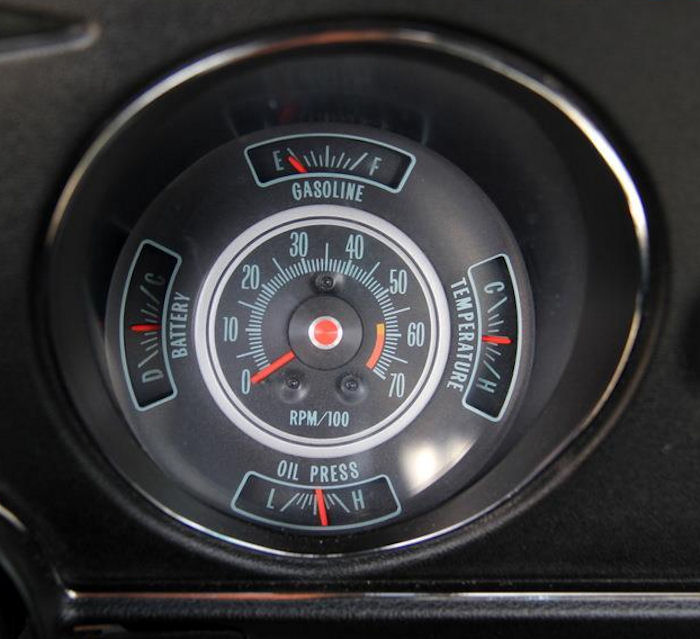
The 375-hp
engine got a 6000 RPM redline tachometer.
Steering Wheel - Group 6.513
Both the Malibu and SS 396 shared the same basic steering wheel. While the Malibu steering wheel was color coordinated with the interior, all SS 396 steering wheels are black. A wood grained plastic 3-spoke steering wheel available on any 1969 Chevelle under RPO N34 and 7,515 were checked off the order form.
